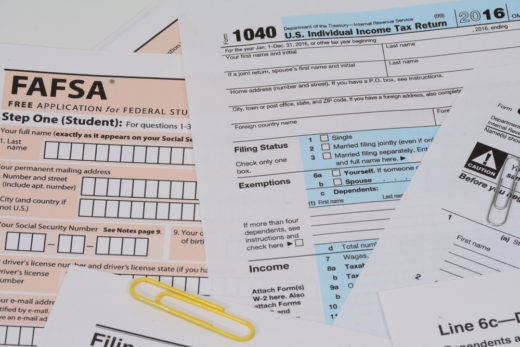New NEBHE brief explores “Closing the FAFSA Gap: FAFSA Completion Rates Among New England’s Low-Income Students” …
 Students in the U.S. who do not file the Free Application for Federal Student Aid (FAFSA) miss out on $24 billion of federal aid every year, despite being eligible for that assistance. First-generation, low-income students are more likely to pass up this support because they have less access to financial aid information and guidance.
Students in the U.S. who do not file the Free Application for Federal Student Aid (FAFSA) miss out on $24 billion of federal aid every year, despite being eligible for that assistance. First-generation, low-income students are more likely to pass up this support because they have less access to financial aid information and guidance.
A new brief by NEBHE examines available FAFSA completion data to assess how New England is closing the FAFSA completion gap for low-income students. Despite FAFSA completion data limitations, various metrics—such as the relationship between district poverty levels, median household incomes and FAFSA completion rates—provide an understanding of how New England states are supporting the FAFSA completion rates of low-income students.
FAFSA completion has a direct impact on the postsecondary path of low-income students. Nationally, low-income students who file a FAFSA application are 127% more likely to enroll in college immediately after high school than their counterparts who do not file a FAFSA application.
FAFSA completion is vital to the sustainability of higher education institutions (HEIs). The high number of incomplete FAFSA applications harms not only low-income students, but also colleges. Enrollment rates continue to decline in New England because of lower birth rates and changing demographics. Several campuses have been forced to close in New England due to shrinking enrollments. Increased efforts that support FAFSA completion for low-income students will be critical to the vitality of HEIs in New England now and in the future.
Among other key findings in the NEBHE brief:
- On average, most urban cities in New England with lower median household incomes and higher poverty levels have lower FAFSA completion rates.
- Data-sharing practices among federal, state and local levels help raise FAFSA completion rates.
- More New England states are moving toward implementing FAFSA portals, a tool that is accessible through federal, state and local level data-sharing practices, and allows school counselors to monitor the FAFSA completion status of each individual student.
Stephanie Suarez is a policy research intern at NEBHE and a recent graduate of the Harvard Education Policy and Management master’s program.
[ssba]
